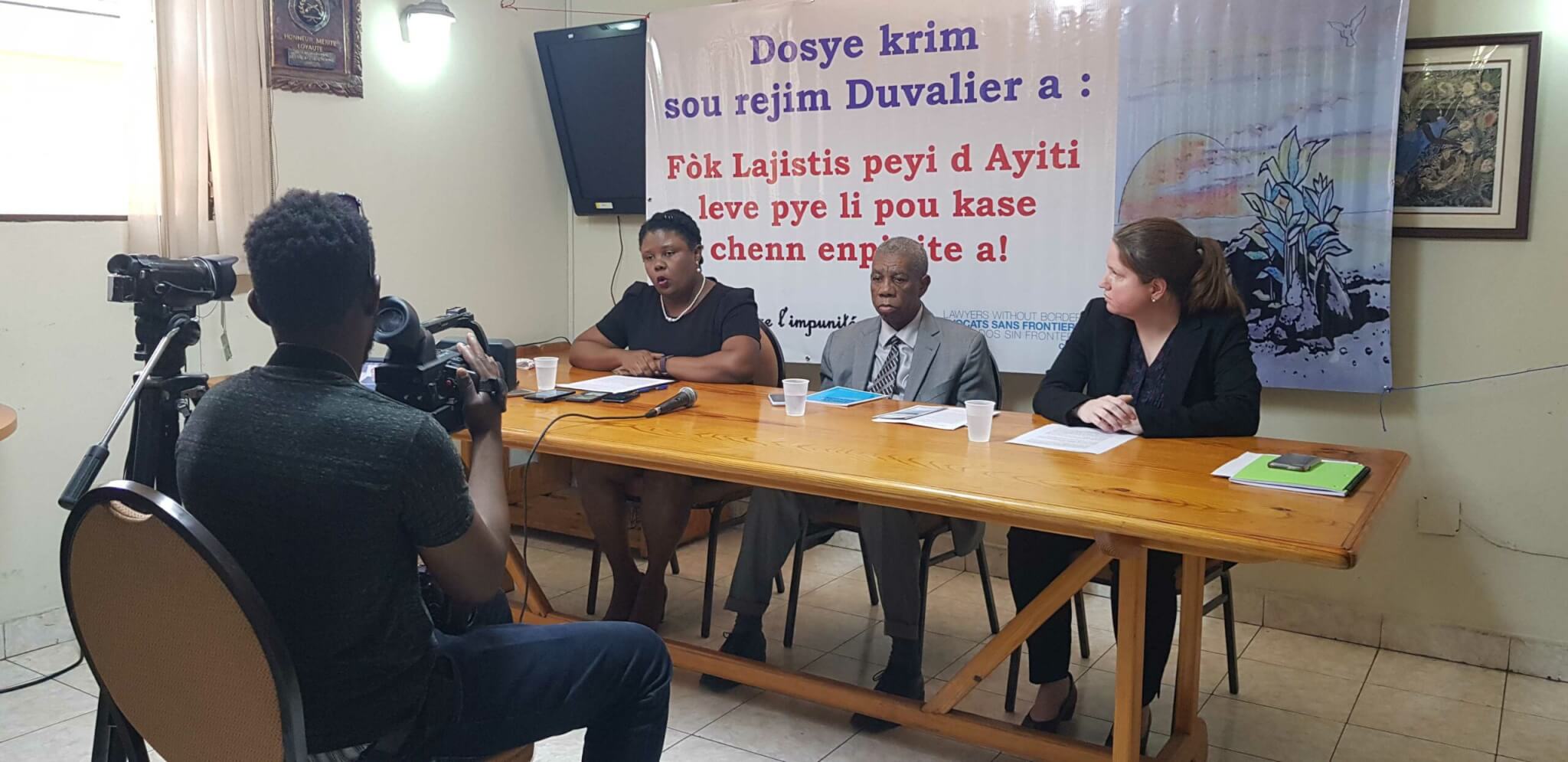New appeal to the IACHR seeking the accountability of the Government of Haiti in light of the judicial standstill in the case of Duvalier and others
- News
- Press releases
30 September 2021

On the return of Jean-Claude Duvalier in 2011, cases were filed against the former dictator and his associates before the Court of First Instance of Port-au-Prince. Ten years on, Haiti’s Collectif contre l’impunité and Lawyers Without Borders Canada (LWBC) have filed a petition before the Inter-American Commission on Human Rights (IACHR). The purpose of this appeal to the Commission is to request the recognition of responsibility and the sanctioning of the Haitian State for the human rights violations committed under Duvalier’s regime, and in particular against the victims who decided to press charges.
In 2014, a significant milestone was reached when the Court of Appeal of Port-au-Prince recognized the existence of reliable evidence against Jean-Claude Duvalier and his associates in the perpetration of human rights violations under his regime. The accusations of crimes against humanity and financial crimes held against the defendants were maintained, and the Court of Appeal ordered further investigation to hear all plaintiffs and witnesses who hadn’t yet testified, and identify and question all alleged perpetrators of the crimes.
Since 2015, with the exception of a few hearings, no progress has been made. The investigating magistrate, Durin DURET, Jr., still hasn’t submitted his report to the Court of Appeal. The halting of this case amounts to a denial of justice for the plaintiffs and the people of Haiti as a whole.
The significance of the Duvalier case in fighting impunity
Absence of justice for victims of the crimes committed under the Duvalier regime perpetuates impunity in Haitian society. Constant human rights violations, corruption, and organized crime are the result of past wrongdoings that were never sanctioned. Fighting impunity with regard to the crimes committed under Duvalier’s dictatorship can help strengthen legal institutions’ response to the Haitian population’s demands for justice.
The violations described in the appeal to the IACHR were committed between 1971 and 1985 and include instances of arbitrary detention, torture, disappearances, forced exile, and extrajudicial killings, all of which, in light of their generalized and systemic nature, amount to crimes against humanity.
According to the Collectif contre l’impunité and LWBC, efforts to reinforce democratic rule of law in Haiti depend on the State’s willingness and capacity to uphold human rights, prevent human rights violations, and bring the perpetrators of crimes to justice. It is the responsibility of State authorities to adopt all necessary measures to conduct a serious investigation and guarantee the safety of both the magistrates working on this case and the victims who have found the courage to speak out.
This is the message that the Collectif contre l’impunité and LWBC strive to deliver.